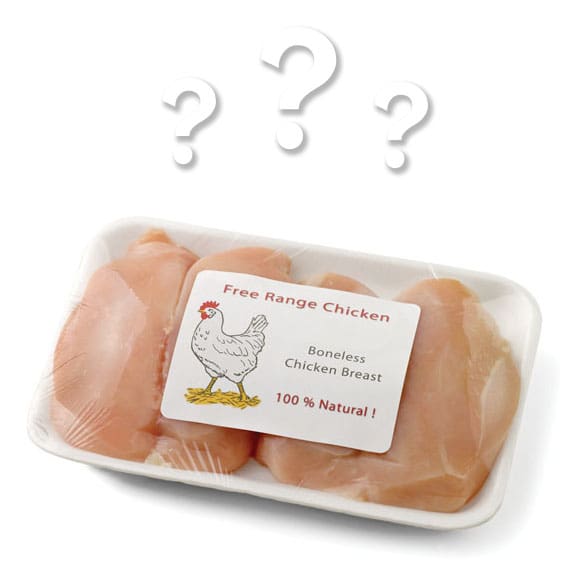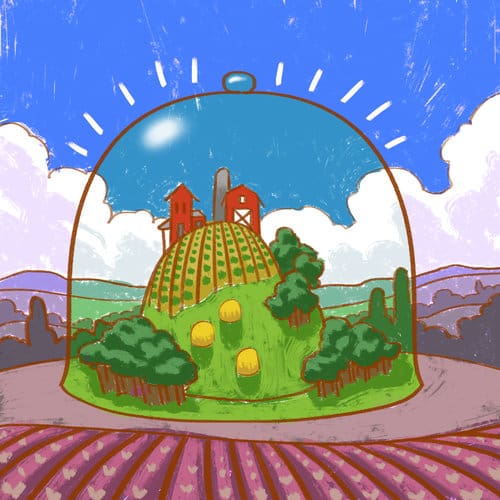WHAT TO IGNORE AND WHAT TO LOOK FOR
Clearing Up Claims Confusion
Even the most well intentioned shopper can have a hard time sifting through all of the different claims on packages in the grocery store meat case. “All Natural,” “free-range,” “fresh,” and “farm-raised” all sound good, but what do they truly mean, and how can you be sure they are verified?
CLAIM TO IGNORE: “CAGE-FREE”
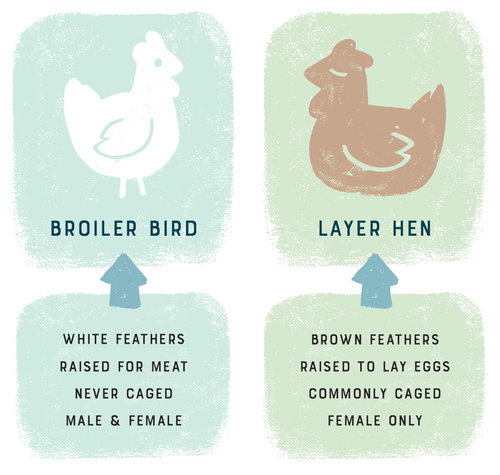
A company who puts a “Cage-Free” claim on a package of chicken is misleading their customers.
In the chicken industry, there are two kinds of chickens: layers and broilers. Layers produce eggs, and broilers produce meat. Some companies keep layer hens in cages to streamline the collection of eggs, which is not a humane way to care for birds. But no companies cage their broiler chickens – it’s costly and impractical. The absence of cages does not mean free-range, and these “Cage-Free” broiler chickens can still be kept in high-density houses—which isn’t much different from a cage anyway.
CLAIM TO IGNORE: “FARM-RAISED”
Similar to “Cage-Free,” this is another way that companies try to differentiate themselves…even though they are no different. All broiler chickens are raised on farms. What actually matters are the certifications a brand carries that speak to the practices on those farms—especially certifications that are subject to third party auditors.
CLAIM TO IGNORE: “ALL-NATURAL”
Some companies will use the claim “All-Natural” on their chicken, but this chicken can still include a lot of things that aren’t natural at all.
“All-Natural” is used to describe products that don’t include added synthetic ingredients (such as artificial colors, MSG, preservatives, etc.), this doesn’t necessarily mean the production methods are entirely natural. “All-Natural” doesn’t rule out the use of a method called “plumping”, which refers to the use of a saline injection that might include ingredients like lemon juice, broth, or sugar (ingredients also considered “All-Natural”). Check the ingredients list, and find sodium content on the Nutrition Information panel.
Additionally, animal by-products, antibiotics, and fillers can still be fed to “All Natural” chickens.
This “All Natural” claim is not only a misleading claim for meat products, but for all food products. Synthetic fertilizers, pesticides, and genetically modified plants are still considered “All Natural”. Look for the USDA Organic, non-GMO, or certified naturally grown labels if you’re trying to stay closer to nature.
click here for FDA comments on the use of “All-Natural” on labels.
CLAIM TO IGNORE: “RAISED WITHOUT ADDED HORMONES” OR “NO STEROIDS”
Many chicken companies make the claim “RAISED WITHOUT ADDED HORMONES!” or “NO STEROIDS” on their chicken packages. More than 75% of consumers think there are added hormones or steroids present in most chicken meat—but the use of hormones and steroids in poultry and pork was banned by the USDA in the 1950s. That is why we never have—and never will—add this claim on our packages, and why you might ask yourself why a company would add this misleading claim to theirs.
Hormones can still legally be added to beef—claims of no hormones in these products certainly DO make a difference in the production methods.
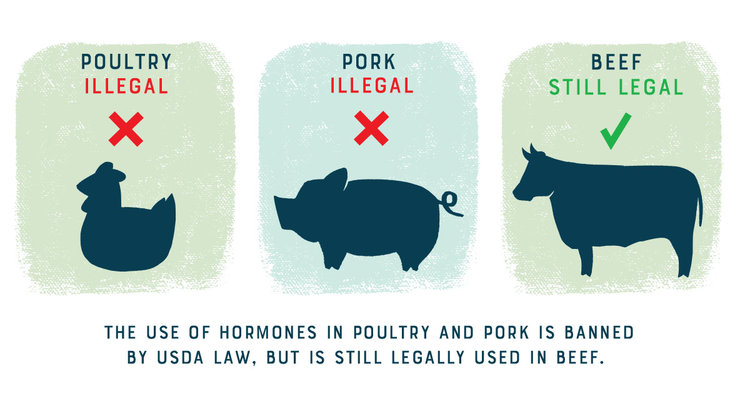
CLAIM TO IGNORE: “FRESH”
In the meat industry, “Fresh” refers to items that have never been frozen below 26°F (-3°C). Meat products are frozen to this degree for long-distance shipping or meal kit delivery. “Fresh” is not an indication of product quality, just the temperature it’s been kept.
CLAIM TO LOOK FOR: USDA ORGANIC LOGO
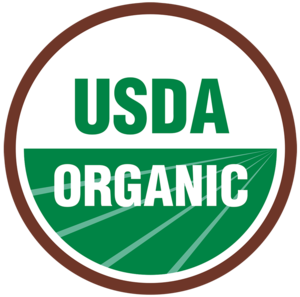
The USDA Organic certification is an official accreditation granted by the Secretary of Agriculture to businesses that submit an application, demonstrate sufficient expertise in organic farming and handling, and comply with the appropriate guidelines. Products with the USDA Organic logo displayed on their packaging or label have been produced without synthetic chemicals, on land that has not been exposed to those chemicals. for 3 years previous.
As it pertains to broiler chickens, the USDA Organic certification means they’re raised without antibiotics and that they have clean, dry bedding in their houses and outdoor access to encourage natural behaviors.
CLAIM TO LOOK FOR: THIRD-PARTY HUMANE CERTIFICATIONS
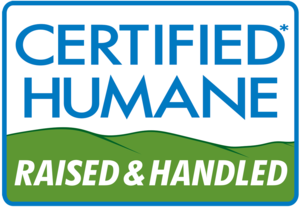
When “Free-Range” appears on a chicken product label, many folks picture the chickens roaming free in a green pasture… but legally it just means they have access to the outside.

Even the USDA Organic certification sets no specific standards for the size of the outdoor area, the size of the door leading between inside and outside, or the amount of time the birds spend outdoors.
Certified Humane and Global Animal Partnership standards outline minimum measures for each of those aspects—to ensure the birds have access to fresh air and room to run.
Other humane/animal welfare labels to look for:

For more information about humane/animal welfare claims,
The Animal Welfare Institute is a great resource!
CLAIM TO LOOK FOR: “NO ANTIBIOTICS EVER”
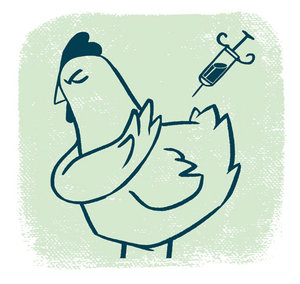
There’s been a lot of buzz about antibiotics used in animal products, and whether or not ABF (antibiotic-free) meat is the same as Organic. To clear things up a bit, Organic meat is always raised without antibiotics, but ABF meat isn’t always Organic. Just like all chickens are birds, but not all birds are chickens.
To add to the confusion, some companies might inject eggs with antibiotics and sell them to Organic producers, because Organic standards are only enforced the day after the chickens hatch. If the use of antibiotics is your most pressing concern, look for the “No Antibiotics Ever” claim.
If a flock requires antibiotics (it’s humane to care for sick birds), it’s then sold as conventional chicken—even if it was intended to be raised Organically. Luckily, SVO has never had to administer antibiotics to a sick flock, because our farmers have never had a sick flock!
CLAIM TO LOOK FOR: “100% FARMER OWNED”
Most poultry growers don’t own the birds they raise, and conventional business models create competition between farmers by using a ‘tournament system’ for compensation.
At SVO, our farmer partners own the chickens and the feed up until they are full grown, at which point we purchase them at a premium price per pound. We treat our farmers with respect and dignity, and pay them fairly, because we believe in and value the work they do.

